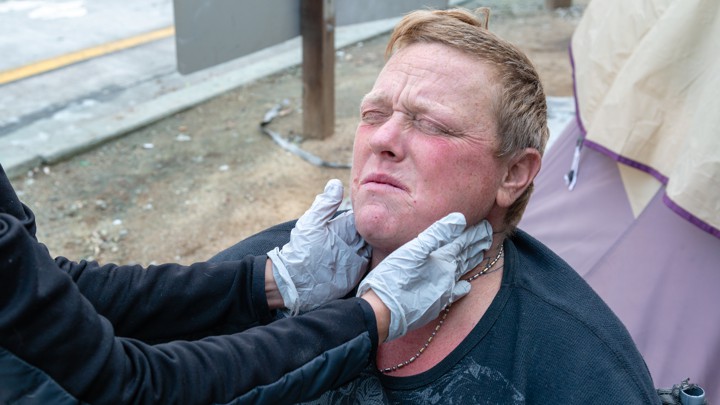Jennifer
Millar keeps trash bags and hand sanitizer near her tent, and she regularly
pours water mixed with hydrogen peroxide on the sidewalk nearby. Keeping
herself and the patch of concrete she calls home clean is a top priority. But
this homeless encampment off a Hollywood freeway ramp is often littered with
needles and trash and soaked in urine. Rats occasionally scamper through, and
Millar fears the consequences.

“I worry about all those diseases,” said Millar, 43, who has been homeless most of her life.
Infectious
diseases—some that ravaged populations in the Middle Ages—are resurging in
California and around the country, and are hitting homeless populations
especially hard. Los Angeles recently experienced an outbreak of typhus—a
disease spread by infected fleas on rats and other animals—in downtown streets.
Officials briefly closed part of City Hall after reporting that rodents had
invaded the building.
People in
Washington State have been infected with Shigella bacteria,
which is spread through feces and causes the diarrheal disease shigellosis, as
well as Bartonella quintana, or trench fever, which spreads
through body lice.*
Hepatitis
A, also spread primarily through feces, infected more than 1,000 people in
Southern California in the past two years. The disease also
has erupted in New Mexico, Ohio, and Kentucky, primarily among people
who are homeless or use drugs. Public-health officials and politicians are
using terms like disaster and public-health crisis to
describe the outbreaks, and they are warning that these diseases can easily
jump beyond the homeless population.
“Our homeless crisis is increasingly becoming a public-health crisis,” California Governor Gavin Newsom said in his State of the State speech in February, citing outbreaks of hepatitis A in San Diego County, syphilis in Sonoma County, and typhus in Los Angeles County. “Typhus,” he said. “A medieval disease. In California. In 2019.”
Comments
Post a Comment